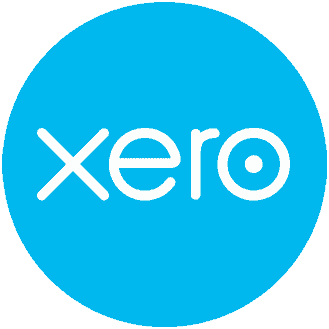Income tax treatment of loyalty points and rebates
As tax advisors, we know there has long been contention around the tax treatment of loyalty points and rewards. We have seen numerous times how large these benefits can actually be. It’s an issue that has largely been overlooked, and something that clients have certainly not wanted to know about.
The Inland Revenue (IRD) on its Questions We've Been Asked page, (QBA) has recently released one on “What is the income tax treatment of gift cards and products provided as trade rebates or promotions” [PUB 00462]. And it appears the free for all may be over.
Trade Customers:
Trade customers will often spend large sums of money with a supplier. In return, the supplier may provide gift cards or products under a trade loyalty scheme. The QBA includes Inland Revenue guidance on the tax treatment of these gift cards and products provided.
Gift Cards:
The face value of gift cards received is considered income, and taxable to the recipient (‘Trade Customers’).
The cards may be used by the company, however they are often used by shareholders, or “gifted” to employees.
• Tax treatment when gifted to employees:
- Here there is a distinction been “open-loop cards” and “closed-loop cards”. This distinction determines the tax treatment when these benefits are provided to employees.
- An open loop card is a payment card that is part of a widely accepted financial network, such as Visa. It can be used at any merchant or location that accepts the card’s payment network. For example, a Visa Pressie Card is a prepaid Visa gift card that can be used anywhere Visa is accepted. For tax purposes, an open-looped card is generally treated as the equivalent to cash.
- Closed-loop cards are cards that are restricted to specific merchants, or groups of merchants. They can only be used within a defined system, such as a specific store, chain or brand. For example, a gift card for a particular retailer, like a Starbucks or Warehouse gift card. For tax purposes, these are generally not considered as an equivalent to “money” as their use is limited. They are typically treated as a non-cash benefit for tax purposes.
- Open Loop Cards: These are treated as money. When provided to non-shareholder employees, they are considered employment income, subject to PAYE. In most instances this will be treated as extra-pay. The Trade Customer (employer) will need to gross up the face value of the open-loop card (as the face value is the amount of money actually received by the employees) by the applicable PAYE rate and pay the PAYE on that value to the IRD.
- For shareholder-employees, the tax treatment depends on specific elections made regarding their income. If they are paid via shareholder salaries (non PAYE), the amount received should not be subject to the PAYE and will instead be taxable in the shareholder-employee’s tax return. Alternatively, if the shareholder has not elected to be paid via a shareholder salary, the open-loop card will be subject to the PAYE rules.
- Closed Loop Cards: These are not considered money. When provided to non-shareholder employees, they are classified as unclassified fringe benefits, subject to Fringe Benefit Tax (FBT), considering applicable thresholds. For shareholder-employees, they are treated similarly unless designated as dividends.
Products:
- Income Treatment: The realisable value of products received is considered income, and taxable. The IRD uses the example of a microwave provided as a trade rebate which can be sold by the Trade Customer. In that instance the money’s worth of the microwave is the price the Trade customer would receive for the microwave if sold, i.e. this may be its value on the second-hand market.
- Depreciation: No depreciation deduction is available for these products, even when used in the business.
- Gifted to employees:
- When provided to non-shareholder employees, products are unclassified fringe benefits, with FBT payable based on market value, subject to thresholds.
- For shareholder-employees, they are treated similarly unless designated as dividends.
Deductions:
Unfortunately, the QBA states the Trade customer cannot claim a deduction for the trade rebate products (or gift cards) because they incur no direct expenditure to obtain these rebates. Deductions are allowed only for the cost of the goods and services purchased from trade suppliers, not for the rebates received.
Likewise, there is no depreciation deduction for products received. Even if the trade rebate products would otherwise qualify as depreciable property, the Trade Customer cannot claim a depreciation deduction. This on the same basis, because the Trade Customer incurs no acquisition cost for the products, there is no ability to depreciate the product.
The IRD concept seems aligned to a rebate or discount scenario. For example, where the Trade Customer has paid $100 for a product, but receives a benefit back of $10, they should only be taking a net deduction of $90 for the product purchase, being the net economic cost to the business. As the Trade Customer has already taken a deduction for the $100, then they would not get another deduction for the $10 benefit used in the business.
However, I’m concerned about the accuracy of this position where the Trade Customer uses the benefit or product in the business. Using this same example:
- The Trade Customer has already taken the deduction for the $100 purchase, but the economic cost was $90 (and likely the benefit received from the initial purchase).
- Instead of reducing the cost/deductible expense, the $10 has come in as income to offset the $100, thus reducing their “cost” (net deduction) to $90.
- Therefore, when they then use that $10 benefit in the business, they should get the deduction for the extra $10.
- i.e. they have incurred $100 of business expenditure and should therefore get a deduction for the full $100 (being the actual expenses incurred, and likely the true value of the benefits received).
A deduction is available for FBT and PAYE paid.
Thoughts
Not addressed specifically in the QBA is the treatment of rewards “points”, but presumably the tax treatment would follow.
I’m concerned that the Trade Customer is required to treat the benefits received as taxable income but does not get a deduction. Where this benefit is then passed on to e.g. a shareholder employee – that shareholder employee also receives a taxable benefit. Not only is this resulting in double tax, but the IRD examples explicitly refer to a liability for shortfall penalties on “the omitted business income”, and also for non-payment of FBT, PAYE.
There is also a need for guidance on the GST treatment.
IRD’s next steps?
Although the QBA refers to an “increasing practice” of trade suppliers providing rebates and cards, these arrangements have been around for a very long time. In the last building boom, the value of these benefits paid out was eye watering.
I saw an audit of this type of arrangement well over ten years ago. At that time, the IRD determined the value of the benefits received were taxable. Luckily, in that case although the shareholder had “used” the benefit, the value could be put through their current account as drawings.
The IRD's next step could be a fully-fledged project to find these benefits. We know they have previously been through Reward Provider databases, so finding this information will not be difficult.
If you have a potential issue or concern, or have a client with a potential issue, please contact us.
*This publication contains generic information only. NZ Tax Desk Ltd is not responsible for any loss sustained by anyone relying on the contents of this publication. We recommend you obtain specific taxation advice for your circumstances.













